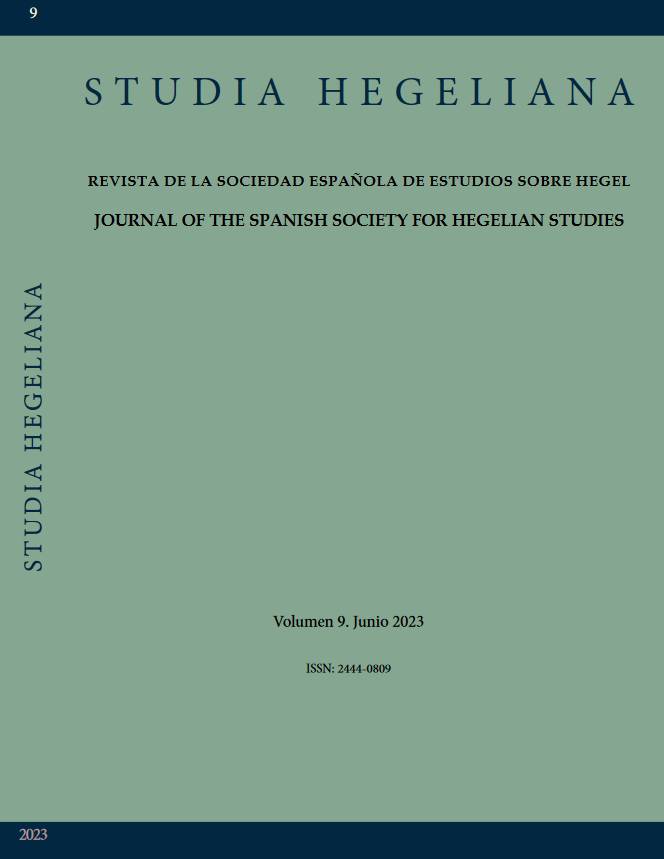Philosophy of History and Religion in G. W. F. Hegel
DOI:
https://doi.org/10.24310/Studiahegelianastheg.v9i.13972Keywords:
Philosophy of History, astuteness of reason, Eticity, theodicy of history, History EndAbstract
It is not our purpose to recount Hegel's work in his Lessons in World History; on the contrary, we want to grasp the concept of the development of history from the action (tat) of the spirit, insofar as history, Hegel says, is "the substance of the spirit". And he develops this theme both in the Encyclopaedia and in the Phenomenology of Spirit, as well as in the Lessons on the Philosophy of Religion (especially in 1828) and in his Philosophy of Right. If history is conceived only through the action of the spirit that becomes movement and becomes freedom and rationality. In such a way that it can be said that reason directs history. But if he describes history as divine, it is because in it reason is historicised and loses its abstract condition. For in history, Hegel says, the spirit is at home. This process of movement must be understood as spiritual substance and the absolute end in the world, hence it is not possible to speak of an end to history. Absolute knowledge does not imply a closure to the infinite process of an unfolding through finite determinations. The importance of ethicity and the philosophy of law must be underlined, for the state as an ethical substance does not cancel out the rights of the subjects that evolve through history. The subjects themselves and the states can be considered as forms of objectification of the spirit in its movement. Absolute knowledge cannot therefore be understood either as a closure of history or as an overcoming of the figures it produces in its movement. Rather, it is what Hegel holds to be the Theodicy of history. And in it, religion already manifests the assumption of negativity and the overcoming of the death of God by the spirit in the community. Now, the community reaches its highest expression in the state, Hegel's claim is not to exalt the state, but he takes into account that citizens are subjects of law within the state.
Downloads
Metrics
Publication Facts
Reviewer profiles N/A
Author statements
Indexed in
-
—
- Academic society
- N/A
- Publisher
- Universidad de Málaga
References
Downloads
Published
How to Cite
Issue
Section
License
This journal provides immediate free access to its content under the principle of making research freely available to the public. All contents published in Studia Hegeliana. Journal of the Spanish Society for Hegelian Studies, are subject to the Creative Commons Attribution-NonCommercial-ShareAlike 4.0 licence (specifically, CC-by-nc-sa), the full text of which can be found at <http://creativecommons.org/licenses/by-nc-sa/4.0>. Derivative works are therefore permitted as long as they are not used for commercial purposes. The original work may not be used for commercial purposes. The journal is not responsible for the opinions expressed by the authors of the works published in it.
It is the authors' responsibility to obtain the necessary permissions for images that are subject to copyright.
Authors whose contributions are accepted for publication in this journal retain the copyright. It is non-exclusive right to use their contributions for scholarly, research and educational purposes, including self-archiving or deposit in open access repositories of any kind.
Since volume 7 of 2021 the journal Studia Hegeliana has changed the copyright. Since that year the authors have retained the copyright.
The electronic edition of this journal is published by the Editorial de la Universidad de Málaga (UmaEditorial), being necessary to cite the source in any partial or total reproduction.







244.png)






















